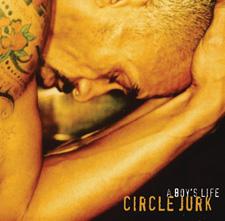It’s ironic that pop music, the sonic grenadine to gay cultures’ perpetually sweet tooth, has a distinct paucity of out and proud singers. We may be living in a brand new millennium, but there is still nary a Mary to be seen in the top 40.
Toronto-based singer Billy Newton-Davis is one of the few and the proud. Having moved beyond 1980s icon status and landing a stint with The Nylons, Newton-Davis is still bopping to electronic beats and winning awards coveted by peers half his age. His 2008 Juno Award for best dance album (All You Ever Want) startled many Canadian music insiders still obsessed with finding the next Lolita to overdub.
“I was very surprised at winning the prize,” Newton-Davis confesses. “It was a wonderful recognition from my peers.”
It was his fourth win in a career that has spanned more than 25 years and one that shows no sign of slowing down. He is recording an album of his own original electro dance tracks for Play Records/Play Digital. And his latest outing is as featured vocalist with songwriter/producer Kate Amesbury’s Circle Jurk project. The CD is aptly called A Boy’s Life, a balls-out celebration of all the naughty things men can get up to when left to their own devices.
“Benny cruises the rough trade/ He likes his boys mean/ A leather man gives Benny a taste/ They both drop some Ecstasy/ Then they disappear down a side street/ The air was thick with sex and attitude/ And when the sun came up/ And the whip came down/ Benny was black and blue.”
There are certainly no ambiguities in Amesbury’s lyrics. These are frank tales of sex and drugs set to slinky Latin grooves and directed squarely at partying poofters.
“I wanted to work in the gay and lesbian market musically, but not dance music,” Amesbury says. “I had this concept for something very tongue in cheek, sort of what Cole Porter would write if he were around today.”
The project was originally slated for release in 2004 but stalled at the gate when Amesbury discovered that there weren’t a lot of gay singers willing to sing so overtly about their sexuality.
“It’s a homophobic business,” she says. “Even four years ago the singers I approached — and I approached some rather large names — weren’t willing to come out.”
Working with gay and AIDS activists like Newton-Davis gave Amesbury the freedom to highlight Circle Jurk’s sex-positive messages and an opportunity to write an entirely new piece based on Newton-Davis’ early work as one of Sammy Davis Jr’s back-up singers.
“We were two black men in a white man’s world/ Bojangles and the secret queen/ Oh Sammy taught me to dance.”
The instrumentation on A Boy’s Life is first rate. Amesbury’s career as a film composer based in Atlanta gave her access to some real musical heavyweights. Players Sonny Emery, Vance Taylor and Dick Smith cut their teeth in the original Earth, Wind and Fire; they give Amesbury’s catchy melodies a beautifully nuanced, clean sound. It’s clear these musicians are completely in synch with one another and their soloing is unmuddied and nicely understated.
Songs like “A Thrill’s a Thrill” and the title track move to Latin grooves and you can practically hear Newton-Davis grinning as he coyly funks out on “White Boys.” The anthem-like “I’ve Got a Dream” reminds the listener of the singer’s prodigious gospel and Broadway roots.
I confess that I found myself initially disarmed by the lyrical content of A Boy’s Life. The excellence of Amesbury’s musicians and Newton-Davis’ vocals is unquestionable, but the overt lyrics were pulling me out of the music until I realized they were no more lascivious — and indeed somewhat milder — than your average Christina Aguilera album.
Internalized homophobia’s a bitch that way, and perhaps therein lays the mystery of homo-pop’s tenuous presence in the art form our community embraces with such ardour. Fortunately sinful treats like A Boy’s Life show us we can keep moving forward while grooving to first-class gay tunes.

 Why you can trust Xtra
Why you can trust Xtra


